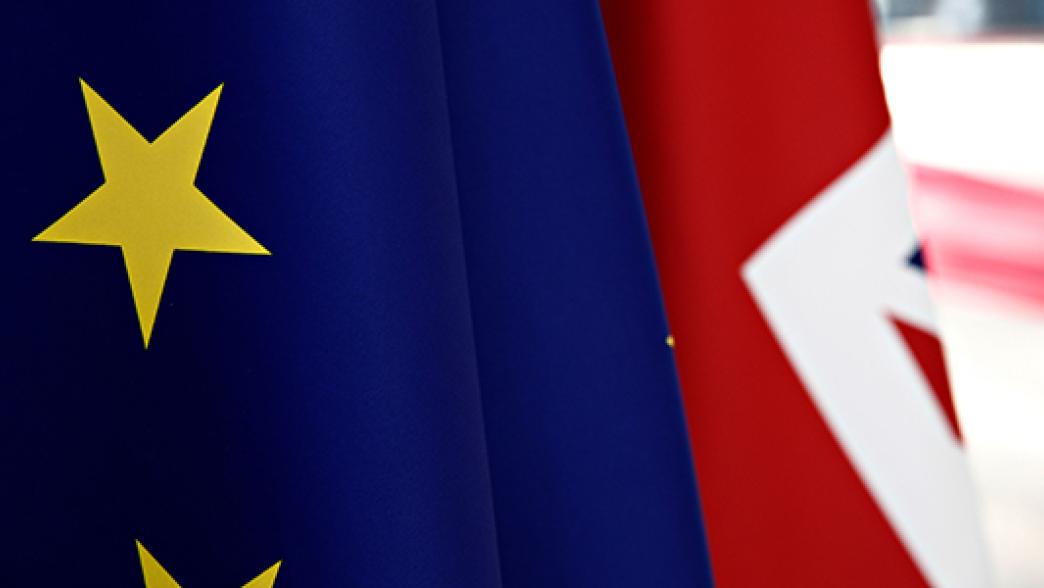UK–EU future relationship: options for equivalence
Equivalence refers to a decision by one state to recognise another state’s legal requirements for regulating a good or service, even though they may n

The information in this explainer details the situation at the time of publication and does not reflect possible recent developments.
What is equivalence?
Equivalence refers to a decision by one state to recognise another state’s legal requirements for regulating a good or service, even though they may not be exactly the same. In practice, this means that a trader need only comply with one set of requirements in both states. This usually applies in a very specific area – for example, it is most often used in relation to aspects of financial services regulation.
Equivalence is frequently related to other concepts of regulatory co-operation such as mutual recognition and harmonisation. Mutual recognition involves both sides recognising each other’s standards or regulatory regimes rather than one side making a decision on the other’s standards or regulatory regimes.
The only major example where broad-based mutual recognition has been established is within the EU single market. This is also supported by significant “harmonisation” – a process whereby conflicting rules or standards are replaced by common European ones.
Why does equivalence matter to the UK after Brexit?
The EU has recognised standards or regulatory regimes of non-EU or EEA countries as equivalent in several areas: data adequacy, financial services and airline security to name a few. The EU’s chief negotiator, Michel Barnier, says that mutual recognition may not be possible in light of the UK’s decision to end free movement of people and to end the jurisdiction of the European Court of Justice, which enforces the single market's rules. He has said the best the UK can hope for are equivalence decisions, in areas where EU legislation allows this. These would allow the UK to retain some privileged rights to access the EU market.
Equivalence decisions are based on an assessment of the results of regulatory regimes, rather than the similarities between different regulatory regimes. However, they are not immune to it based on political criteria – as the Swiss found when the EU refused ended equivalence, closing access rights to its stock market due to an impasse in negotiations in other areas of policy.
Even if the EU is open to agreeing equivalence in some areas, it could become conditional on other concessions from the UK in the trade negotiations such as on fisheries.
What is the scope for equivalence decisions?
EU legislation allows equivalence decisions. For example, around a quarter of financial services legislation provides for equivalence. This means that while some areas of investment banking and insurance could achieve equivalence, retail banking and reinsurance cannot.
Because the UK was a member of the single market, and so meets many EU rules already, it might be possible to agree equivalence in areas beyond those currently provided to those outside the EU. This would require new EU legislation to update the current frameworks for equivalence – which the EU is considering.
How does the EU make decisions on equivalence?
The EU makes equivalence decisions by 'implementing acts' which are akin to secondary legislation in the UK.
The procedures differ by policy area but the decisions are based on proposals by the European Commission, with input from committees of experts or EU regulators, and then subject to approval by the Council of the EU.
Take data for example. The Commission makes a proposal, which is considered by a committee of data protection experts from member states – the national equivalents to the Information Commissioner’s Office in the UK. The Commission’s proposal then requires the approval of the Council of the EU by qualified majority and is then considered by the College of Commissioners.
Decisions about data adequacy are based on whether there are equivalent data protection law and rules in place as well as other aspects: the rule of law; respect for fundamental rights and freedoms; relevant legislation (particularly around security and public bodies' access to data) and the scope for judicial redress.
The process of granting equivalence to other countries is similar for financial services. An important difference in financial services is that while the EU might grant equivalence to a particular country, it is sometimes necessary for individual companies to get additional approval from EU regulators.
Who ensures that equivalence is maintained?
Equivalence can be withdrawn unilaterally by the EU. In 2015, the European Court of Justice found data equivalence with the US to be invalid following a challenge by an Austrian citizen through the Irish High Court. A new – more restricted – equivalence decision was put in place by the EU shortly after this.
EU legislation provides for equivalence, but equivalence decisions themselves do not establish a procedure for maintaining this equivalence. This will also need to be negotiated, with the Commission playing a key role.
How long do equivalence decisions take?
Equivalence decisions can be made rapidly – as in the case of US data equivalence – or they can take several years, particularly where they form part of wider trade negotiations.
As part of the Solvency II legislation to harmonise insurance regulation, the EU provided equivalence to several third countries pre-emptively when the legislation came into effect. This could be a useful approach for negotiations on the UK's future relationship with the EU.
- Topic
- Brexit